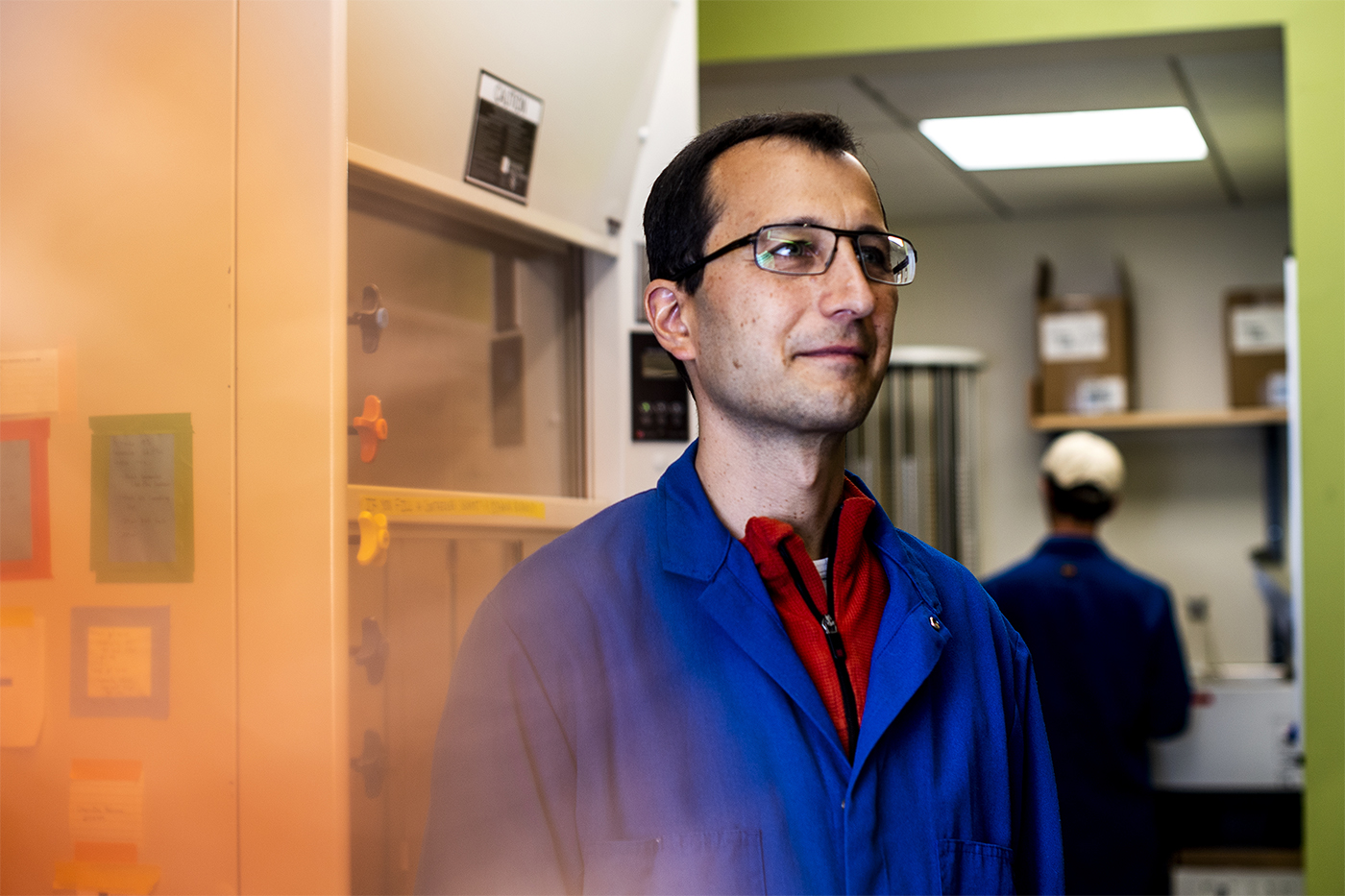Northeastern professor Javier Apfeld tests the lifespan of c. elegan worms to understand how the brain dictates age

The key to living a long life is a lot less glamorous than sipping from the Fountain of Youth. Stress, starvation, and other hostile living conditions are actually the secret ingredients for longer lifespans—at least when it comes to worms.
This might seem contrary to conventional wisdom, but scientists have known for years that things like limited food supplies and unfavorable temperatures increase the lifespan of a species of worm called Caenorhabditis elegans, or C. elegans for short.
Now a group of Northeastern researchers under the direction of biology assistant professor Javier Apfeld want to know why. Their hunch? Getting old is really just a mind game.
Apfeld and his team of researchers are investigating how signals from the brain control how quickly organisms age. They do these tests on C. elegans in the hopes that one day these worms might answer questions about our own mortality.

Javier Apfeld, an assistant professor of biology at Northeastern, and his team of researchers are investigating how signals from the brain control how quickly organisms age. Photo by Ruby Wallau/Northeastern University
“We can affect the function of some neurons, and the worms will live 50 percent longer. It’s pretty amazing that they have this capacity to live longer, but instead the neurons could say, ‘No, not right now,’” Apfeld says. “Maybe humans have something like that too.”
Apfeld likened the ability to extend a worm’s lifespan to cooking. If he wanted to, he says he could make a worm live six times longer than it would normally by manipulating its environment or its neurons. “I know the recipe,” he says.
But right now he’s not that interested in playing god and changing these worms’ fates. Instead, he wants to find out how these manipulations affect the worms’ nervous systems, and why they result in longer lifespans.
One type of external manipulation is dietary restriction. For example, it’s been proven that if the C. elegans are given less food than they need, they will live longer. Scientists speculate that if organisms can sense that food is limited, their bodies will start to age more slowly in anticipation of a more optimal time to reproduce in the future, according to Apfeld.
“In an environment with very limited food, the organism might not have enough resources to reproduce. Or if they think that their progeny aren’t going to have enough resources to grow, maybe it’s a better strategy to wait until the environment changes,” Apfeld says.
Another factor that influences a worm’s aging process is the temperature of the environment. “Chemistry goes slower at lower temperatures, so since the worms don’t control their own body temperature, they would live shorter lives at higher temperatures. It’s like playing the movie faster, so to speak,” Apfeld says. The opposite also applies for colder temperatures, which would extend the lifespan of these worms.
C. elegans is the perfect test species for this type of work because of its quick turnover. Its average lifespan is 20 days. Plus, most of the worms are hermaphrodites, meaning they can reproduce alone.
“If you put a hermaphrodite on a plate, in one day they’ll lay about 300 eggs, and then it takes about two days for those worms to hatch and become adults,” Apfeld says.
According to Apfeld, some researchers have been able to prolong the lifespan of C. elegans from about three weeks to 180 days. But if the trick to living longer is starving and shivering, is the extra time even worth it?
“Is it a good life? That’s hard to say,” Apfeld says. “If we understood the mechanisms of aging better, maybe we could intervene in less stressful ways and prevent diseases that come with getting older, so that’s promising.”
“We want to live longer lives, and we want to live more meaningful lives,” Apfeld says. “So why settle?” Apfeld’s lab is striving for both.
For media inquiries, please contact media@northeastern.edu.





